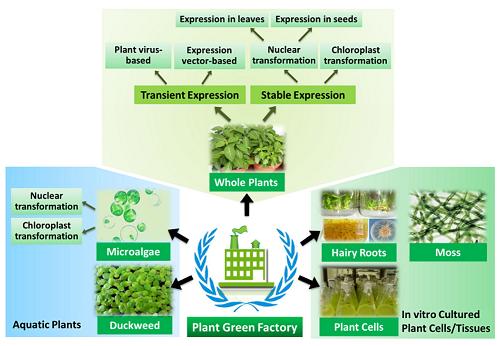In recent years, the quest for optimal health and nutrition has led many individuals to explore different sources of protein, a vital macronutrient that plays a crucial role in building and repairing tissues, supporting immune function, and maintaining muscle mass. Among the myriad of options available, plant-based protein and whey protein stand out as two popular choices, each with its unique benefits and drawbacks. Whether you’re a seasoned athlete, a fitness enthusiast, or simply someone looking to make informed dietary choices, understanding the nuances between these protein sources can be invaluable. In this article, we’ll delve into the pros and cons of plant-based and whey protein, helping you navigate the complex landscape of nutrition with empathy and clarity, so you can choose the option that best aligns with your health goals and lifestyle preferences.
Understanding Your Protein Needs: A Personalized Approach
Finding the right protein source can be as personal as choosing your favorite music genre. For some, plant-based protein feels like a harmonious symphony, offering a gentle and sustainable alternative to animal products. For others, whey protein hits all the right notes, providing a quick and efficient way to meet daily protein requirements. Here’s a closer look at the pros and cons of each, so you can make an informed choice that resonates with your lifestyle and health goals.
- Plant-Based Protein Pros:
- Rich in fiber and essential nutrients
- Environmentally sustainable
- Suitable for vegans and those with lactose intolerance
- Plant-Based Protein Cons:
- May require larger servings to match the protein content of whey
- Can sometimes have a grainy texture or earthy taste
- Whey Protein Pros:
- Quick absorption, ideal for post-workout recovery
- Complete protein with all essential amino acids
- Generally palatable with a smooth texture
- Whey Protein Cons:
- Not suitable for those with dairy allergies or lactose intolerance
- Environmental impact due to dairy production
Choosing between plant-based and whey protein ultimately depends on your dietary preferences, ethical considerations, and how your body responds to each. Whether you’re drawn to the plant-powered benefits or the rapid recovery offered by whey, ensuring your protein source aligns with your overall wellness journey is key. By understanding the strengths and limitations of each, you empower yourself to make choices that support your unique nutritional needs.

Exploring the Health Benefits and Drawbacks of Plant-Based Proteins
When it comes to choosing the right protein source, understanding the health benefits and drawbacks of plant-based proteins compared to whey protein is essential. Plant-based proteins, derived from sources like peas, hemp, and brown rice, offer a host of advantages:
- Rich in Nutrients: These proteins often come with additional nutrients such as fiber, vitamins, and minerals, which contribute to overall health.
- Environmentally Friendly: Plant-based options typically have a lower environmental impact, making them a more sustainable choice.
- Allergy-Friendly: They are free from common allergens like lactose, making them suitable for those with dairy intolerances.
However, it’s important to be aware of some potential downsides:
- Incomplete Amino Acid Profile: Unlike whey, most plant-based proteins are not complete proteins, meaning they may lack some essential amino acids unless combined properly.
- Digestibility: Some individuals may find plant proteins less digestible, potentially causing gastrointestinal discomfort.
In contrast, whey protein, a popular choice among athletes and fitness enthusiasts, offers its own set of benefits:
- Complete Protein: Whey provides all nine essential amino acids, which are crucial for muscle recovery and growth.
- Fast Absorption: Its rapid absorption rate makes it an excellent option for post-workout recovery.
Despite its advantages, whey protein is not without its drawbacks:
- Lactose Content: Those with lactose intolerance may experience digestive issues when consuming whey.
- Environmental Impact: Whey production has a higher carbon footprint compared to plant-based alternatives.
Delving into the Nutritional Advantages and Disadvantages of Whey Protein
Whey protein, derived from milk during the cheese-making process, is often celebrated for its impressive nutritional profile. It is rich in essential amino acids, particularly leucine, which is crucial for muscle protein synthesis. This makes it an excellent choice for athletes and fitness enthusiasts aiming to build and repair muscle tissues. Moreover, whey protein is rapidly absorbed by the body, providing a quick protein source after workouts.
- Advantages:
- Complete protein source with all essential amino acids.
- Quick absorption rate, ideal for post-exercise recovery.
- Supports muscle growth and repair.
- Disadvantages:
- Potential digestive issues for those with lactose intolerance.
- Some people may experience bloating or gas.
- Not suitable for individuals with dairy allergies.
While whey protein offers numerous benefits, it’s essential to consider individual dietary needs and preferences. For those with lactose intolerance or dairy allergies, plant-based protein might be a more suitable alternative. Additionally, some individuals may find the taste or texture of whey protein less appealing, prompting them to explore other options. Understanding both the advantages and potential drawbacks can help you make an informed choice that aligns with your nutritional goals and lifestyle.
Making the Right Choice: Tailoring Protein Intake to Your Lifestyle and Goals
Choosing between plant-based and whey protein can feel like navigating a maze of nutrition advice. Each type of protein has its unique set of benefits and drawbacks, which can significantly impact your health goals and lifestyle choices. Understanding these differences is crucial in making an informed decision.
- Plant-Based Protein Pros:
- Rich in fiber and antioxidants, promoting overall gut health and reducing inflammation.
- Environmentally sustainable, offering a more eco-friendly option for conscious consumers.
- Suitable for those with lactose intolerance or dairy allergies.
- Plant-Based Protein Cons:
- May lack certain essential amino acids, necessitating a varied diet for complete protein intake.
- Some may find it less palatable or more challenging to digest compared to whey protein.
- Whey Protein Pros:
- Contains all essential amino acids, making it a complete protein source.
- Rapidly absorbed by the body, ideal for post-workout recovery.
- Proven to support muscle growth and maintenance.
- Whey Protein Cons:
- Not suitable for those with lactose intolerance or dairy allergies.
- May contribute to digestive issues such as bloating for some individuals.
- Environmental impact due to dairy farming practices.
Ultimately, the choice between plant-based and whey protein should align with your dietary preferences, ethical beliefs, and fitness goals. It’s about finding what works best for your body and lifestyle, ensuring you feel energized and supported in your daily activities.








































